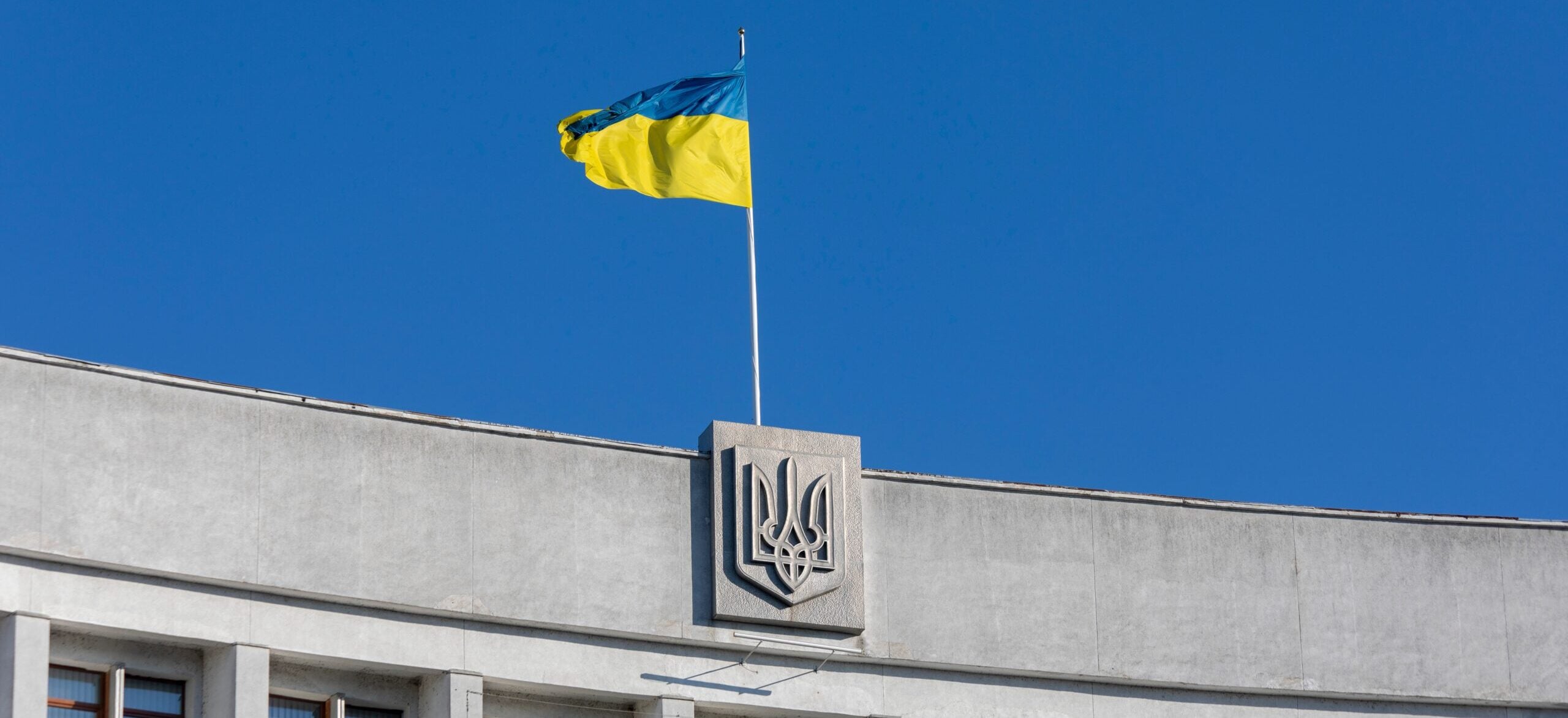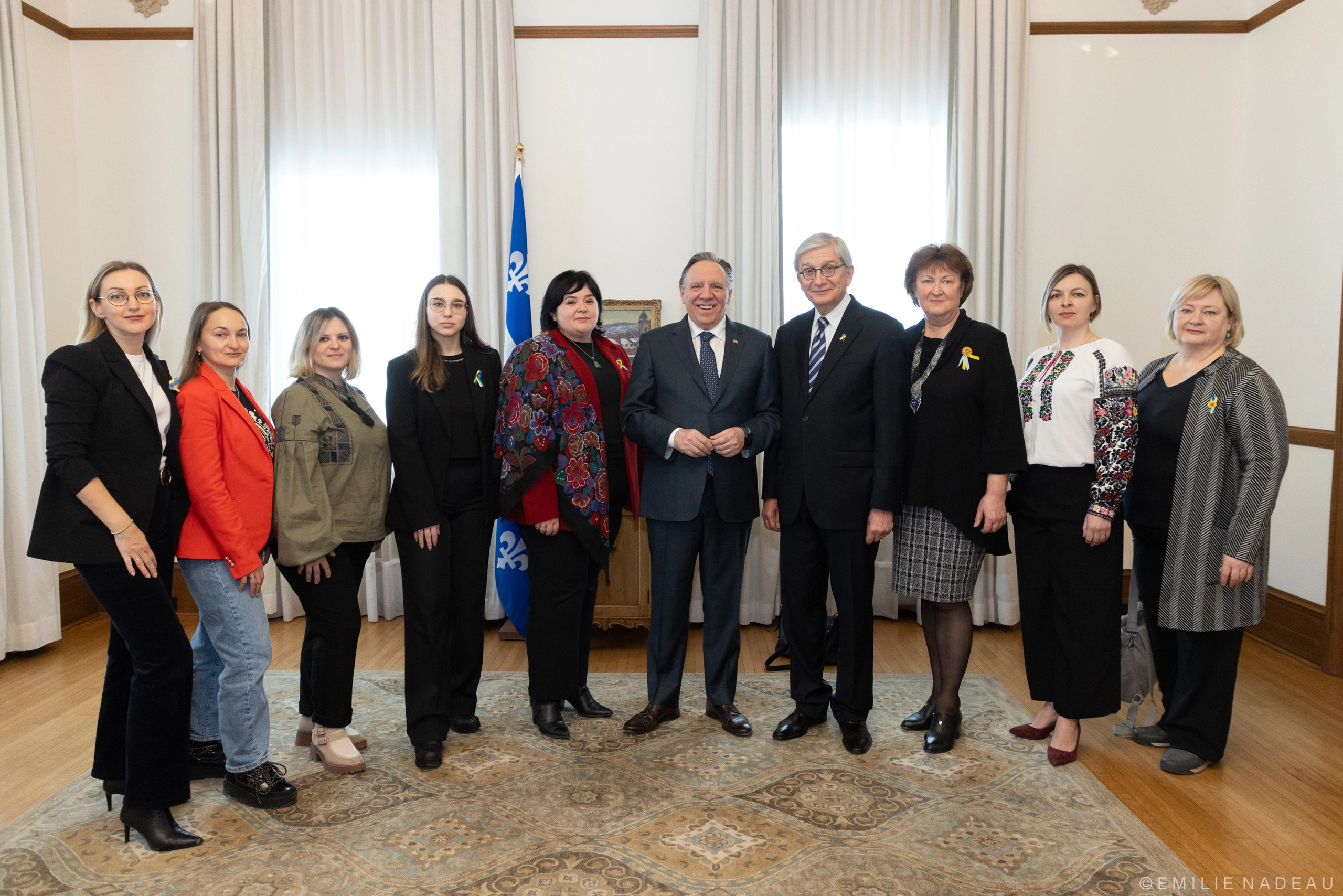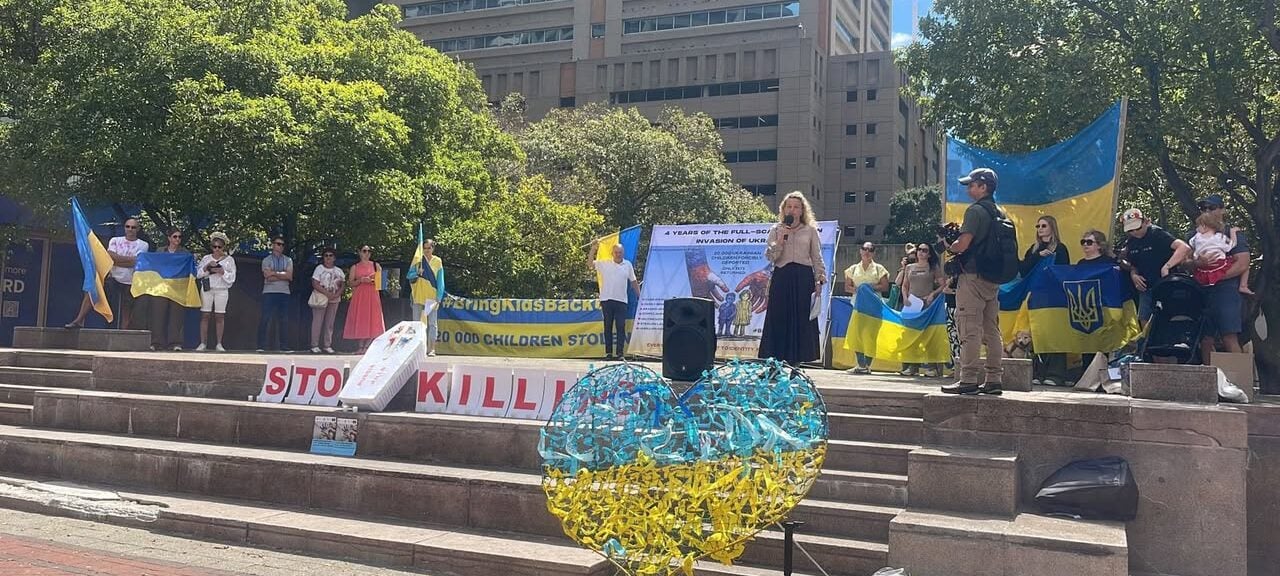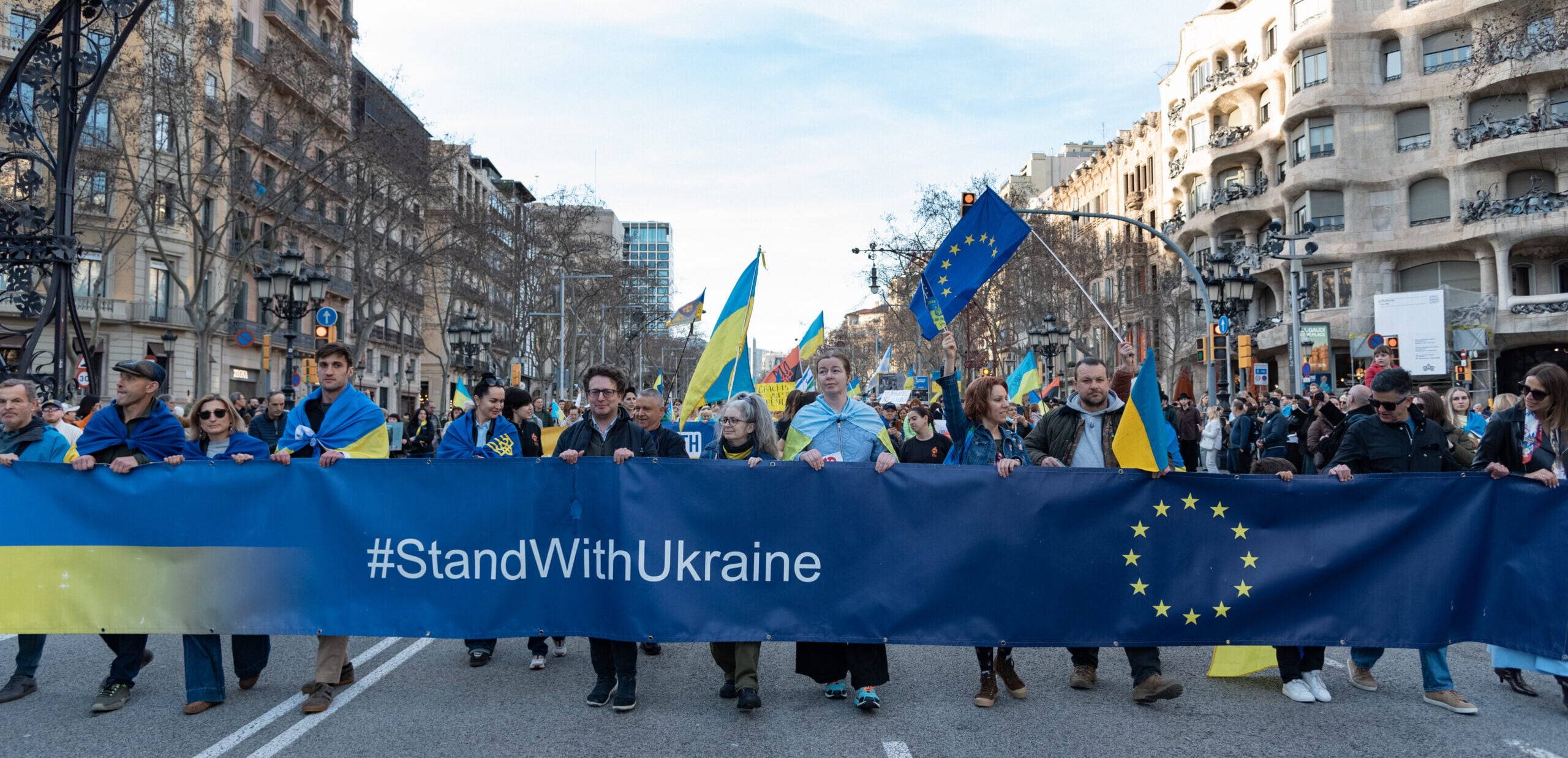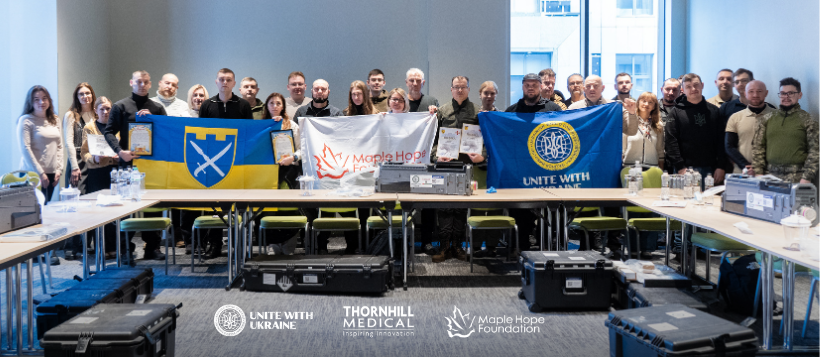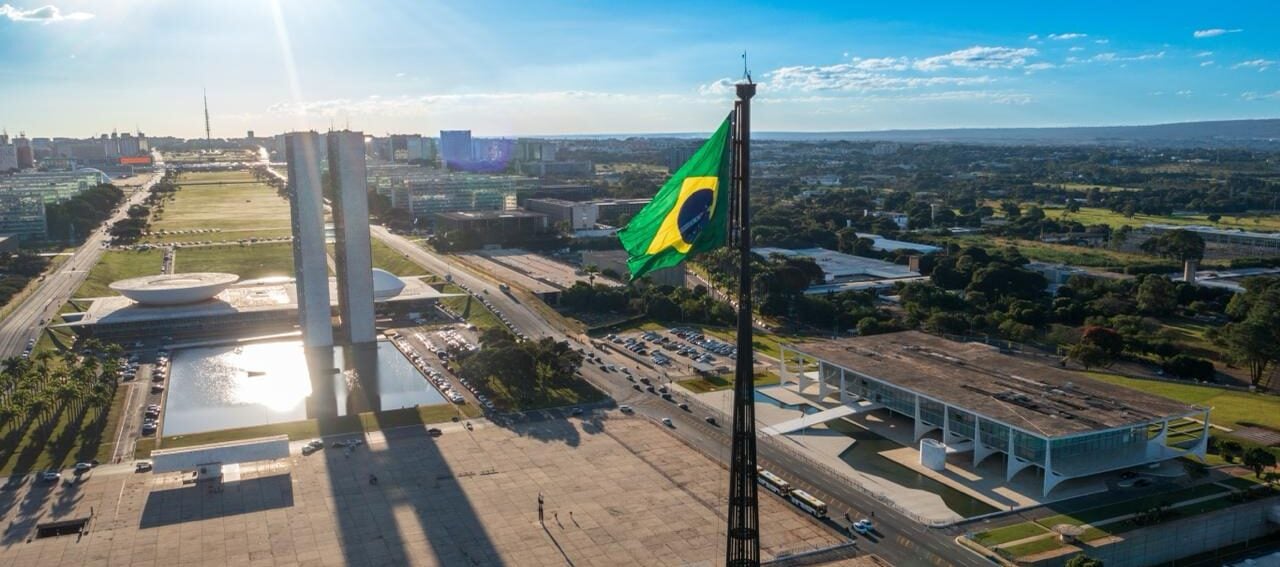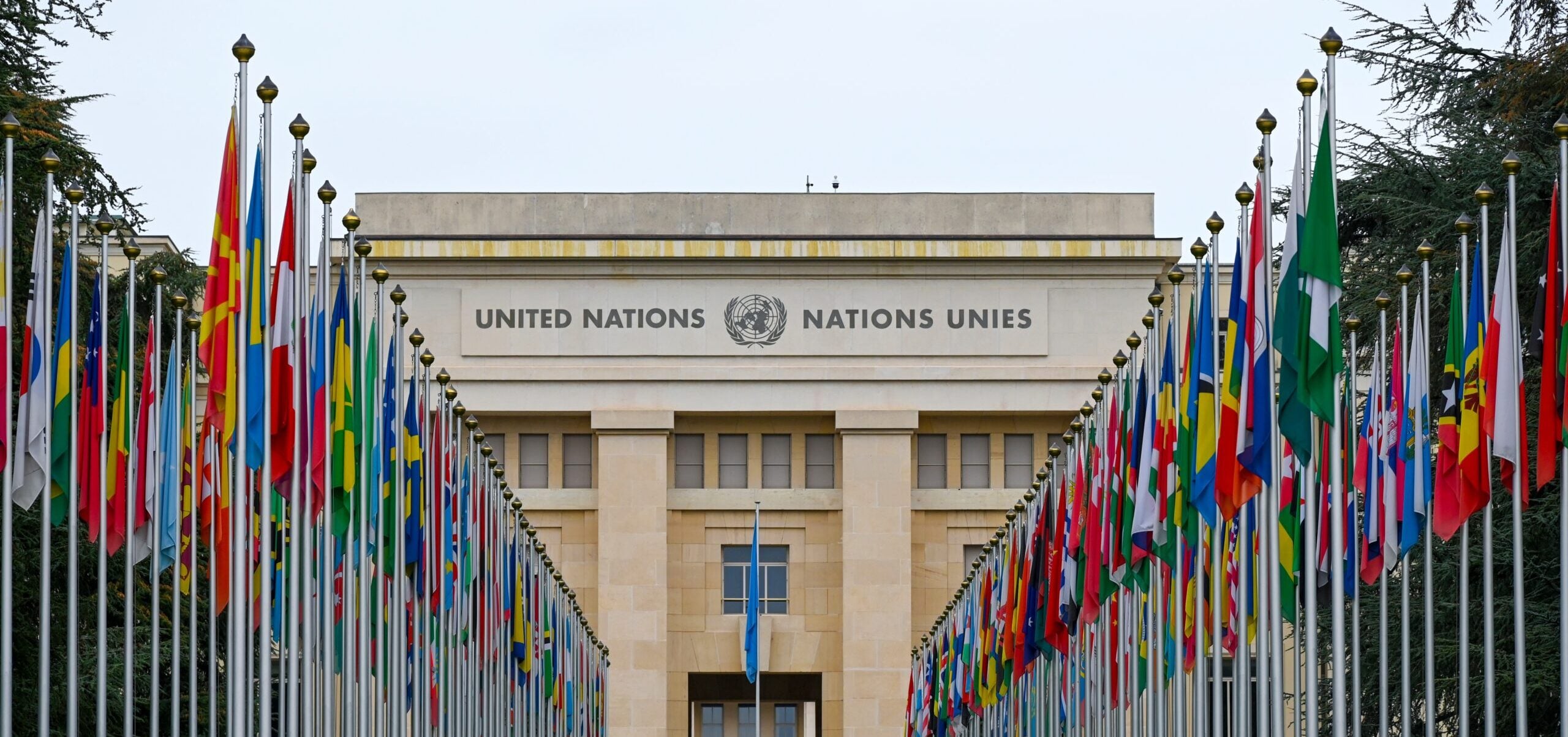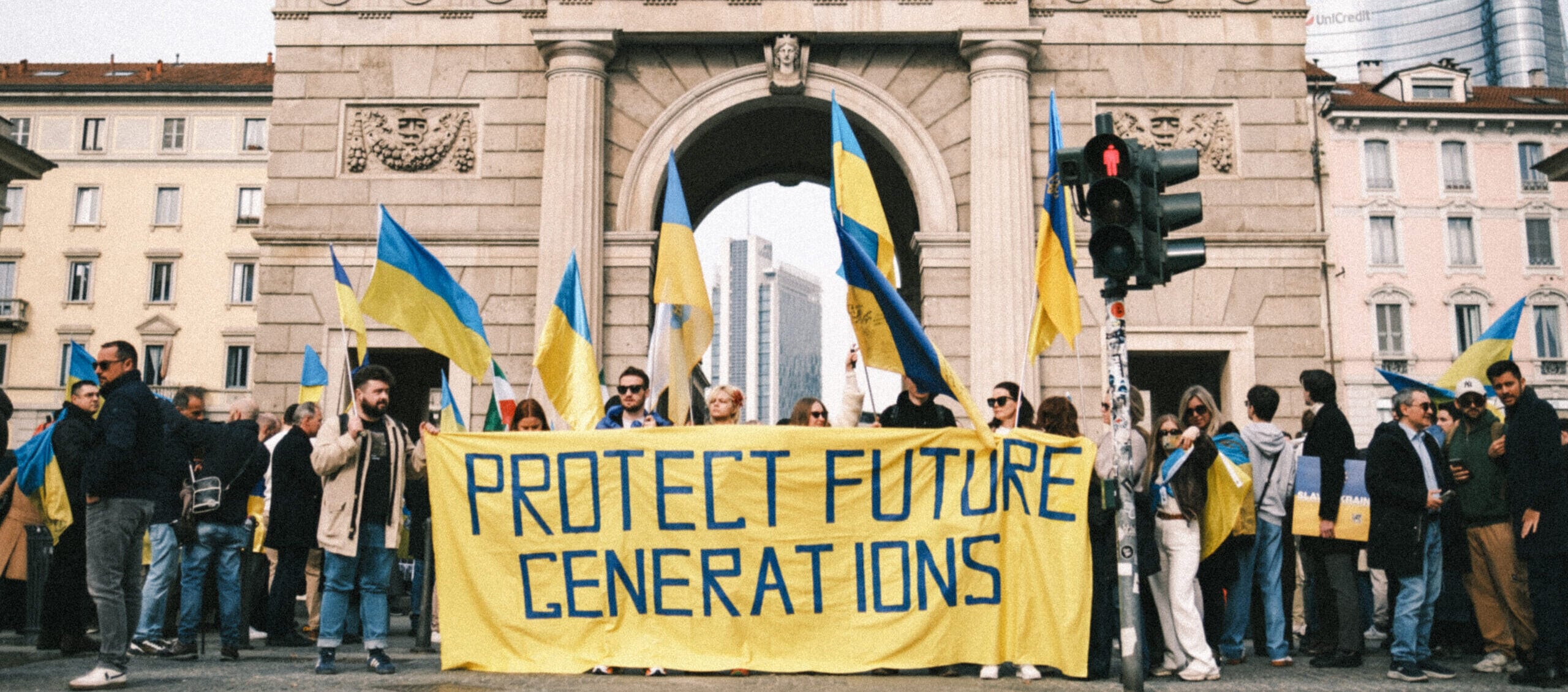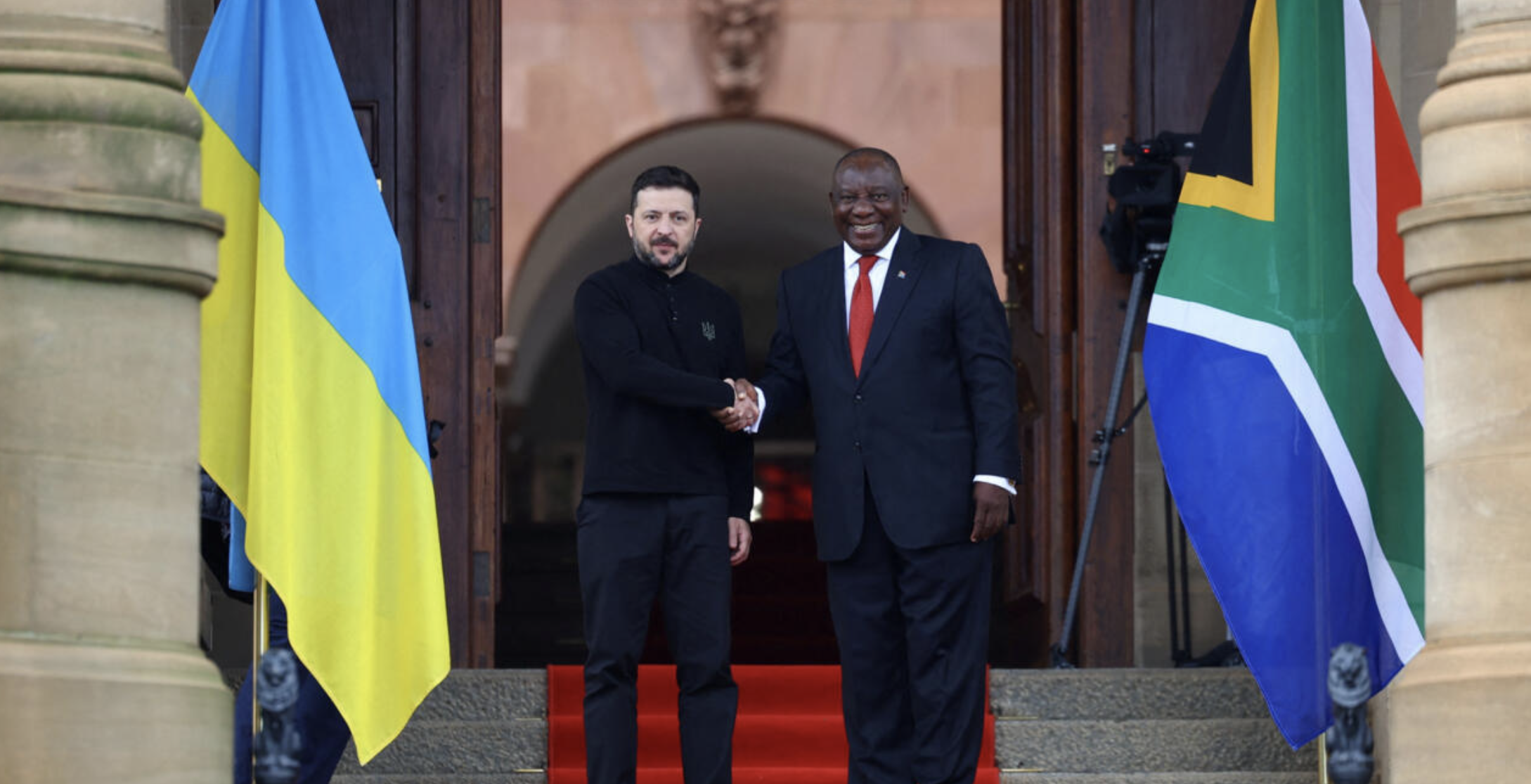

by Dzvinka Kachur, UWC Regional Vice President for Africa and co-founder of the Ukrainian Association of South Africa (UAZA)
Source: Ukrainska Pravda
Ukrainian President Volodymyr Zelenskyy made an official visit to the Republic of South Africa on April 24. Although the long-awaited trip was cut short due to devastating overnight attacks in Ukraine, it marked a major milestone in Ukraine’s growing diplomatic engagement with Africa, which has gained momentum since 2022.
This was the first official presidential visit to the African continent and the first visit to South Africa in Ukraine’s 34 years of independence. While the visit received little attention at home, it did not go unnoticed globally — drawing the interest of diplomats around the world, including Kremlin ruler Vladimir Putin and U.S. President Donald Trump.
Zelenskyy’s visit to South Africa presents an opportunity to form an alliance between Ukraine and African nations – countries that, though not global superpowers, cooperate on mutually beneficial terms and together demand the restoration of balance in international governance systems and respect for international law.
South Africa: a regional leader and global player
South Africa is one of the most influential countries on the African continent. This year, it holds the G20 presidency, is a member of BRICS, and plays a key role in the African Union. With its political clout, economic power, and active diplomacy, South Africa serves as a strategic gateway to Africa for countries looking to establish long-term partnerships in the region. It is also among the continent’s top three economies, with a population of 60 million and a gross domestic product of around $410 billion. For Ukraine, deepening ties with South Africa is more than a symbolic step — it’s a strategic move to gain a strong and influential partner.
At the United Nations, South Africa has consistently abstained from votes on Ukraine-related resolutions. Still, it has maintained support for the principle of territorial integrity — even as the United States ramps up pressure on Ukraine to consider territorial concessions.
Three years ago, it would have been hard to imagine South Africa extending an official invitation to the president of Ukraine. On Feb. 24, 2022, South Africa’s defense minister was spotted celebrating with champagne at the Russian Embassy. By December, the sanctioned Russian cargo ship Lady R had quietly docked at a South African naval base, triggering widespread condemnation.
Then, in Feb. 2023 — on the first-year anniversary of Russia’s full-scale invasion —South Africa held joint military exercises with China and the Russian occupiers.
But in democratic countries, foreign policy is rarely fixed. South Africa is home to an independent judiciary, a vibrant free press, and transparent democratic elections. It is not without flaws — but it is, undeniably, a democracy.
South Africa entered a new political phase after the national elections in May 2024. The African National Congress (ANC), Nelson Mandela’s party, lost its parliamentary majority for the first time since 1994. Just months before the elections, a faction of pro-Russian ANC members split off to form a new political party. In response, President Cyril Ramaphosa formed a national unity government, assembling a broad coalition of ten parties. This move significantly weakened the influence of pro-Russian forces in both the government and parliament.
While some parties, such as the Economic Freedom Fighters (EFF), the newly established Umkhonto we Sizwe (MK), and the South African Communist Party, publicly opposed President Zelenskyy’s visit, they no longer dictate the country’s official position. The Ramaphosa administration seeks to maintain a balanced foreign policy and remains open to partnerships that align with South Africa’s national interests.
Africa-Ukraine: from historical ties to a strategic path
Political changes alone were not enough to make Zelenskyy’s visit a reality. The efforts of Ukrainian diplomats in South Africa and the pressure from civil society also played a key role.
Ukraine has maintained strong ties with African countries since Soviet times, particularly through its support for anti-colonial movements. It also played an important role in the fight against apartheid, co-chairing the UN Special Committee Against Apartheid and, starting in the 1960s, training South African freedom fighters.
After 1991, however, Ukraine’s ties with the continent began to decline. There was a clear lack of expertise and economic connections with just 10 embassies across 54 countries and no strategic documents from Ukraine’s Ministry of Foreign Affairs. Ukraine-Africa relations became the work of a few enthusiastic individuals who continued to engage in business, bring African students to Ukraine, or focus on cultural diplomacy.
The full-scale invasion in 2022 changed this. It highlighted that Africa, with its youthful population, holds 25 votes of votes in the UN. In response, Ukraine developed its first strategy for the continent in 2022, followed by a communication strategy in 2023. During the ongoing war, Ukraine achieved the seemingly impossible – doubling its diplomatic presence in Africa to 19 embassies.
President Zelenskyy’s visit to South Africa marks a significant milestone in this process: Ukraine is now engaging directly with African partners, bypassing Western or other intermediaries.
However, these changes won’t bring immediate results. While most African countries continue to adopt a non-alignment stance, abstaining in UN votes, only a few – such as Eritrea and Mali – openly support Russia. Building strong communication with African governments, many of which have been severely impacted by global financial and food instability due to Russia’s aggression, and are frequent targets of Russian disinformation, will certainly yield long-term positive outcomes.
Ukraine – a key player in global politics
Despite its ongoing political isolation since 2022, Russia continues to project the image that this isolation does not affect African, Latin American, or Asian countries. For domestic propaganda, the Kremlin regularly brings in marginal African politicians and bloggers. Against this backdrop, the presence of President Volodymyr Zelenskyy in South Africa – while Putin is unable to visit due to an arrest warrant from the International Criminal Court – sends a powerful message: Ukraine is a key and legitimate player on the African continent.
Furthermore, the fact that Donald Trump called President Cyril Ramaphosa on the morning of his meeting with Ukraine’s president highlights the significance of Ukraine’s cooperation for African countries aspiring to regional leadership.
South Africa, Africa, and the moral order
Zelenskyy’s visit took place during South Africa’s symbolic Freedom Month. On April 27, 1994, the country held its first democratic elections, where all citizens, regardless of race, were able to vote. This journey to freedom – through struggle, repression, and negotiations – sadly mirrors Ukraine’s own experience. Ukraine and South Africa are united not only by a shared history of struggle but also by a common vision for a future grounded in shared values: freedom, justice, and dignity.
Unexpectedly, the perception of Ukraine across Africa shifted significantly after the meeting between Trump and Zelenskyy in the Oval Office. For many countries of the Global South, the stark contrast between Trump, exerting pressure from a position of power, and Zelenskyy, defending his country from a stance of moral values, sparked an emotional response. This moment triggered resistance to neocolonialism, bolstered sympathy for Ukraine, and instantly dismantled Russia’s narrative that Ukraine is merely a “puppet of the US.”
In a world where power dynamics seem to be shifting, and global powers attempt to divide the world, South Africa and Ukraine are once again emphasizing the importance of democracy, territorial integrity, freedom, and human rights.
What can South Africa offer Ukraine?
South Africa will not sell weapons to Ukraine or impose sanctions on Russia. However, it can play a crucial role in economic cooperation, humanitarian efforts, nuclear security, and serve as a partner in UN reforms.
During his visit, President Zelenskyy handed President Ramaphosa a list of 400 children forcibly deported to Russia. In 2023, during a meeting with Putin, South Africa’s president had called for the return of all Ukrainian children, but Putin refused. However, South Africa has the means to assist in the repatriation of these children, thanks to its connections in Russia.
Another key area for South Africa is nuclear security. It is currently the only country on the continent with an operational nuclear power plant, though 16 other African nations are considering building their own. In Egypt, Rosatom is already constructing a new plant. African countries are keen on creating legislation to protect nuclear facilities from military attacks. How the issue of the Russian-occupied Zaporizhzhia Nuclear Power Plant is resolved will be critical for the future of the nuclear sector.
Lastly, South Africa has consistently supported Ukraine’s “territorial integrity within its internationally recognized borders, including territorial waters.” For African nations, where borders were often drawn arbitrarily by former colonial powers, any revision of these borders would signal the onset of endless wars. In 2022, during a speech at the UN, Kenya’s representative strongly condemned imperial ambitions and the potential for redrawing borders of former colonies. In a world where transactional international politics is on the rise, South Africa and other African countries could serve as voices that remember the colonial wounds and stand against the growing trends of neocolonialism.
Cover: Siphiwe Sibeko / Reuters
